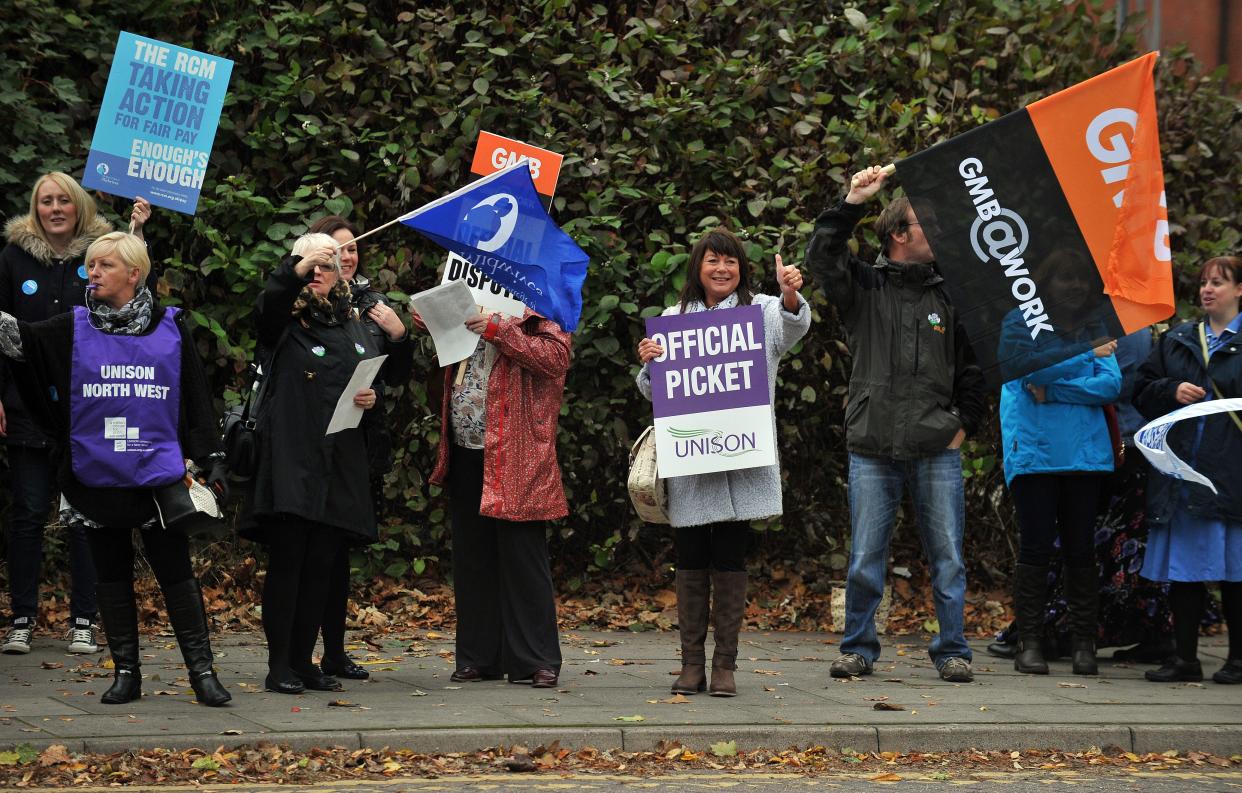What happens to pregnant mums if midwives strike?

A ballot of midwives has opened over whether they take strike action.
The Royal College of Midwives (RCM) has encouraged its members in England and Wales to vote for strike action - as well as “action short of a strike” where midwives strictly follow the terms of their contracts and refuse, for example to take overtime - amid a pay dispute with the government.
It comes after the Royal College of Nursing announced this week that its members in the majority of NHS employers across the UK have backed industrial action.
The RCM’s ballot will close on 12 December, with no planned date for strike action should members vote for it. By law, trade unions must give employers 14 days’ notice before industrial action can take place.
But what happens to pregnant mums if midwives do go on strike? Here, Yahoo News UK explains all…
Firstly, why are RCM members being encouraged to strike?
The union says: “The NHS pay award in England and Wales is below inflation [which is currently at 10.1%] and is a pay cut in real terms.” The pay award, announced in July, was £1,400.
“We believe that the treatment of NHS staff affects how they feel which in turn affects the quality of care they can provide. Staff who feel undervalued and demoralised cannot deliver the quality of care maternity services users deserve."

There are also wider concerns about staffing, with a national shortage of 2,000 midwives. Alice Sorby, the RCM’s director for employment relations, told Yahoo News UK: “Our members want to take action and part of the reason is worries about retaining midwives in the NHS.
“We need enough midwives to deliver safely and paying people fairly is really key to this. We need to be able to retain midwives for that safe care.”
So if there is a midwife strike, what happens to pregnant mums?
Sorby said: “When the RCM has taken action previously, it was always ensured essential care, such as for women in labour, would continue. We always want to ensure safety is a priority.”
In its FAQs about the ballot, the RCM also states: “When we took action in 2014 and 2015 we maintained safe services. Our workplace representatives worked with managers to ensure there was cover during the stoppage which is intended to be similar to the cover on a bank holiday.”
But the NHS is notoriously stretched - would pregnant mums be at risk?
Sorby insisted that would not be the case, and claimed mums won't notice a difference in care.
“I would say no, there would be processes employers would be putting in place to make sure risk assessments happen and that any essential or emergency care would continue, so women requiring that care wouldn’t see a difference.”


